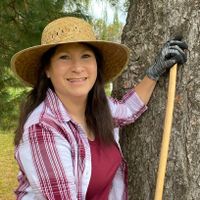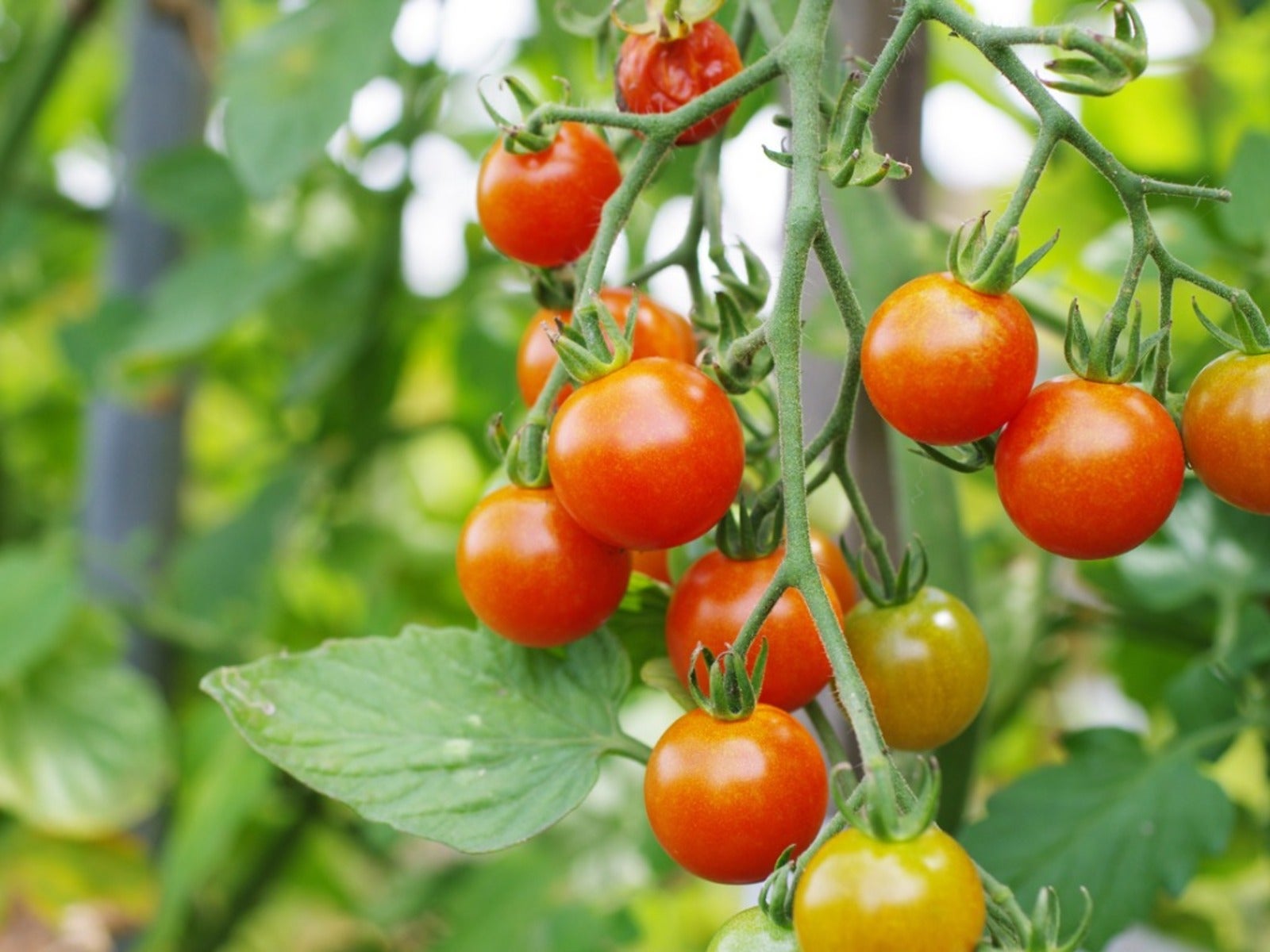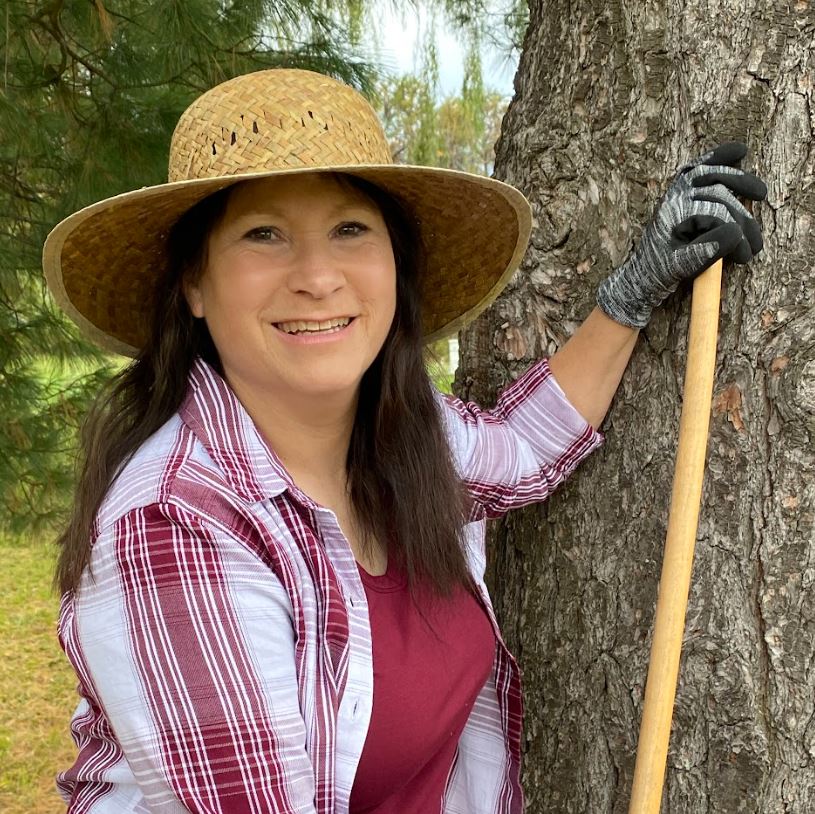Do Cherry Tomatoes Need Cages?


Sign up for the Gardening Know How newsletter today and receive a free copy of our e-book "How to Grow Delicious Tomatoes".
You are now subscribed
Your newsletter sign-up was successful
Do cherry tomato plants need cages? Most cherry tomatoes are indeterminate, meaning the vines continue to grow and produce fruit until killed by frost. Super Sweet 100, a very popular variety, can produce vines that reach 8 feet (2.4 m) long. If you don't want cherry tomato plants sprawling all over the garden, it's advisable to grow them with a support system.
What are Cherry Tomatoes?
Named for their shape, cherry tomato plants produce clusters of small fruit that range in size from a marble to a golf ball. One benefit of cherry tomatoes is that smaller fruit size typically means fewer days to maturity. Plus, cherry tomatoes can ripen to beautiful shades of red, orange, yellow, and purple, depending upon the variety.
Cherry tomatoes are both popular and versatile garden veggies. They are the perfect size for salads and snacking, but these tomatoes also add splashes of color to cooked dishes. While gardeners often distinguish cherry tomatoes by their round shape, grape and small pear-shaped tomatoes grow in a similar fashion and also benefit from being caged, staked, or trellised.
Although most cherry tomatoes are indeterminate, there are a few exceptions which produce their fruit all at the same time. Determinate varieties, such as Tiny Tim and Micro Tom, have a bush like growth habit and generally don't require support. These types are often referred to as patio tomatoes as they are an ideal choice for container gardening.
How to Support Cherry Tomato Plants
Although tomato plants are vines, they lack tendrils or other means for self-attaching to a vertical surface. In most cases, cherry tomatoes will need training by gently securing main stems to the support using soft rope or clips designed for that purpose. When providing support for indeterminate types of cherry tomatoes, gardeners have several options.
Tomato cages
These structures provide 360 degree support by encircling individual tomato plants. Cages make it easy to protect young plants from frost by draping the structure with a cover. Cages are available in varying sizes and types, but gardeners can fashion homemade ones from wood, metal, or fence components.
Cages can be placed around tomato seedlings once the seedlings are transplanted into the garden. Using a cage for cherry tomatoes reduces the need for both tying and pruning plants. However, supporting the structure by attaching the cage to a stake driven into the ground may be necessary to prevent mature plants from toppling the cage.
Sign up for the Gardening Know How newsletter today and receive a free copy of our e-book "How to Grow Delicious Tomatoes".
Tomato stakes
To avoid piercing the roots, it's advisable to drive wooden or metal support stakes into the ground soon after the seedlings are set in the garden. The stakes are placed close to each seedling, taking care not to damage the buried root balls.
Staked tomato plants will require periodic tying to remain upright. This task may need to be done every few days in order to keep up with the growth rate of young plants. Pruning the lower leaves and suckers to improve fruit production is also recommended.
Tomato trellises
Most types of garden trellises can be used to support cherry tomato plants. An inexpensive alternative is to recycle old sections of fencing material by stretching it between poles driven into the ground.
Gardeners often find it's easier to install the trellis prior to transplanting tomato seedlings. Space tomato plants 12 to 18 inches (31-46 cm) apart along the trellis and close enough for the stems to touch the supports. Tomato plants can be tied to the trellis or weaved in and out of the supports. Pruning to control the number of stems is recommended.
How to Prune Cherry Tomato Plants
Selective pruning can lead to healthier plants and higher yields. For these reasons, many gardeners remove the lower leaves as tomato plants grow taller. This allows the plant to concentrate more energy on fruit production. It also increases air circulation which reduces disease pressure.
Finally, tomato plants produce a sucker or side shoot above every leaf. These turn into additional stems if not removed. A multi-stemmed tomato plant can be extremely difficult to secure to a stake or trellis. This is not an issue when using a cherry tomato cage as the entire plant is contained within the support structure.

Laura Miller has been gardening all her life. Holding a degree in Biology, Nutrition, and Agriculture, Laura's area of expertise is vegetables, herbs, and all things edible. She lives in Ohio.